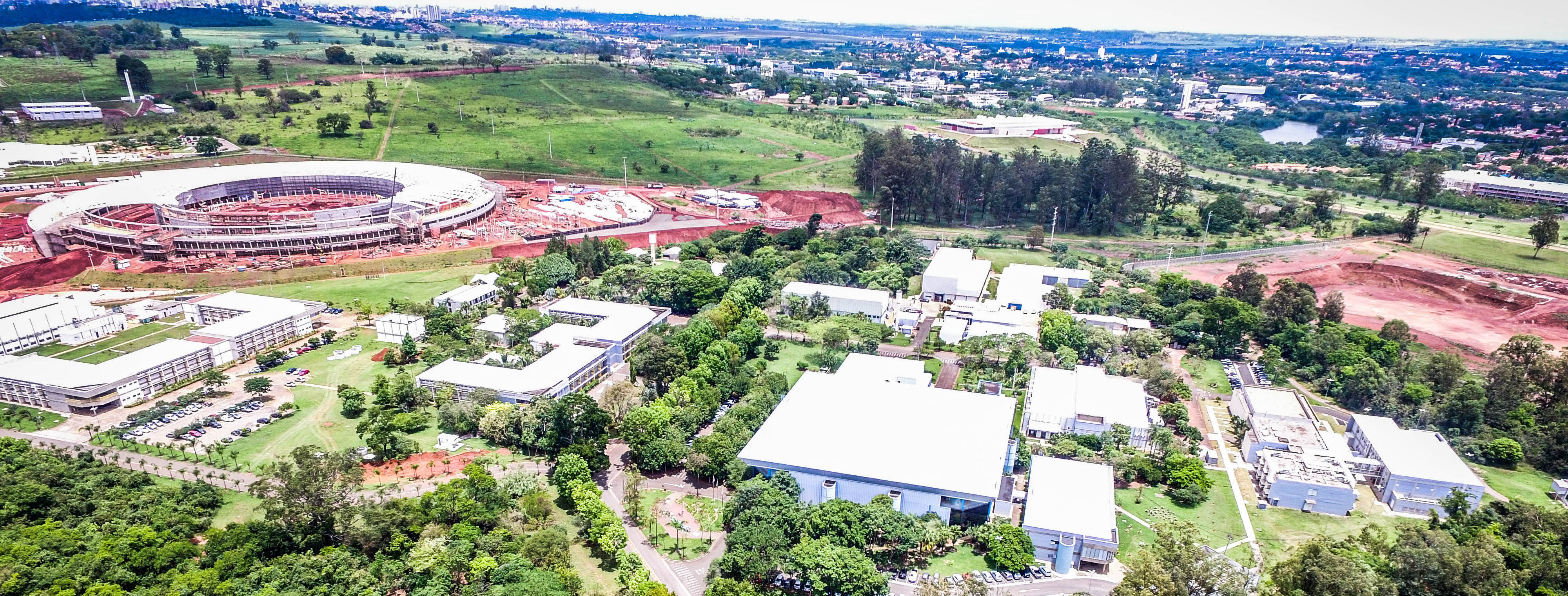Venue
The event will be held in the CNPEM campus.


The event will be held in the CNPEM campus.
Use the menu below to see more information regarding:
Visitors to Brazil must obtain a visa from one of the Brazilian Consulate (in some cases, Embassy) unless they come from one of the visa exempt countries.
We strongly recommend you check with your local Brazilian diplomatic mission if you need to apply for a tourist visa beforehand.
Important: bear in mind that you must apply for a visa in advance, it might take some weeks for you to get it.
The Local Committee (eventos@cnpem.br) can provide a letter of invitation if you need to present it for visa or academic purposes. The Invitation Letter from the CNPEM may NOT be enough to obtain a Brazilian visa. Contact the Brazilian Embassy or Consulate for further information.
The passport must be valid for at least six months beyond your planned date of departure from Brazil.
Participants of the SPSAS-MS are required to provide (purchase if necessary) travel insurance for their stay in Brazil.
You may consider an insurance policy of your choice to protect your interests in relation to cancellations, medical expenses, loss or damage to personal property. The conference organizers cannot take any responsibility for participants failing to arrange their own insurance.
The committee will select 55 foreign students and 35 Brazilian students to be awarded financial support for air ticket, accommodation, and meals. Students with FAPESP scholarship cannot receive financial support from SPSAS-MS.
In due time, the accepted applicants will be contacted by the Local Committee and will receive further information regarding travel arrangements.
REAL (R$) is the currency used in Brazil. It is possible to find some options for exchanging Money at Guarulhos or Viracopos Airports. In Campinas you can also find exchange offices.

The Brazilian Center for Research in Energy and Materials (CNPEM) is a private nonprofit organization located in Campinas, Brazil, which is funded by the Ministry of Science, Technology, Innovation and Communication (MCTIC). It is dedicated to cutting-edge research in materials, nanosciences, life sciences, physics, and chemistry through four National Laboratories: Synchrotron (LNLS), Biosciences (LNBio), Bioethanol (CTBE) and Nanotechnology (LNNano). The four laboratories are open facilities for external users and companies, from Brazil and abroad. They also have technical and scientific teams to provide support for projects, as well as to conduct joint research programs in biomass, green chemistry, drugs and cosmetics development, characterization of advanced materials, catalysts, etc.
The Brazilian Biosciences National Laboratory (LNBio) is dedicated to cutting-edge research and innovation focused on biotechnology and drug discovery and development. LNBio activities are organized into four areas: Open Facilities; Innovation Core; Research in-house; Training and Education. This organizational strategy was designed to encourage the sharing of infrastructure and skills with the academic and industrial sectors. Thus, LNBio aims to optimize and directs its resources to Science, Technology and Innovation activities.
Airports
Campinas Bus Station
Some Brazilian participants will use ground transportation to get to Campinas. Terminal Multimodal Ramos de Azevedo is the official name of it. Bus tickets can be reserved and purchased by Internet for the main bus companies. You would need to check on the bus station which company serves to a certain destination in particular. The local committee can help you with this matter if you need.
Tipping: tipping is not as widespread or regulated in Brazil as it is in other parts of the world. Tipping is your prerogative, a reward for service. It is customary to tip hotel porters, and a gratuity of about 10% is usual in restaurants if good service is received.
Disabled facilities:if you require disability specific facilities, please notify the secretariat.